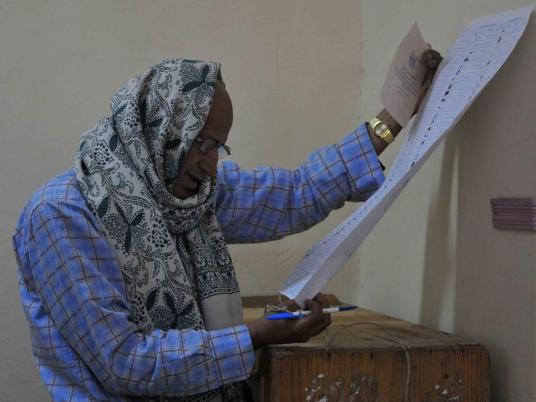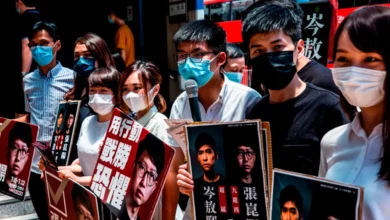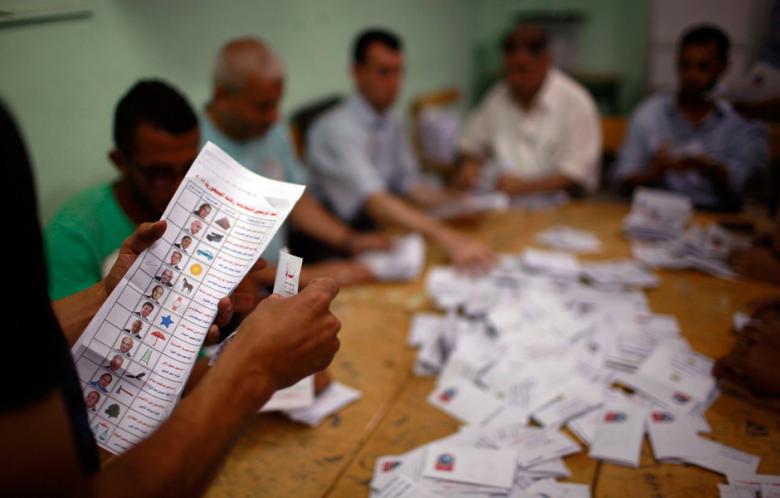
While the second round of the elections was underway, clashes erupted between the military and protesters in Cairo. With a newfound responsibility to make decisions at the polls and strong divides among the people, stress levels are high. Families and friends argue feverishly over the future of the country and their role. Some people are still not sure who they will vote for until they reach the ballot box.
Radwa Nabil, 28, is a revolutionary. She rushes to finish her work during the day so she can go downtown at night to participate in demonstrations and help the cause. During the clashes that took place in late November, Nabil brought food and medical supplies to injured people on Mohamed Mahmoud Street.
Nabil is frustrated at those who call the people who have been killed "thugs" and argue that they deserved to die. “People who speak from behind the television sets are formulating opinions without actually seeing the people, judging the men who protected the women simply because they are poor and appear to be less refined.” As she speaks from behind her office desk, a mood ring on her right hand rapidly changes colors. Nabil went to Al-Azhar scholar Emad Eddin Effat’s funeral to show her solidarity with the protesters and to get away from the television and the atmosphere that she feels is feeding into her stress.
Nabil is especially anxious because this time she cannot participate and actually do something to help those “who are dying for a cause.”
A person's anxiety level has to do with how confident he or she feels about a situation and his or her ability to handle it. Feeling helpless exacerbates stress.
In general, since the start of the Egyptian revolution, people have been anxious about the uncertainty of the country’s future. After having their future dictated in a matter-of-fact form for the past 50 years, Egyptians now must make decisions on their own. They are forced to make sense of situations that are unclear.
Psychologist Nahed Barakat says, “The elections can be stressful because of their consequences and because they came at a time when the second wave of the revolution had started, so people's stress levels were already high. If people are highly invested in certain candidates, the anticipation of whether these candidates will win or lose is stressful on its own. Additionally, the uncertainty of what the elections will bring adds another layer of stress to the process.”
Ayesha Osman told Egypt Independant she had no reason to worry after she voted in the first round and before the events of the past couple of days. However, after watching buildings burn and people get killed, she is angry, confused and feeling helpless. “Do you hate everyone?” she wonders. Reading posts on Facebook and Twitter and watching the news, Osman doesn't know what the future holds or how the country can move forward from current events.
The stress, whether from decision-making or other sources, can even cause physical ailments in a person.
“The side effects of stress depend on the intensity of the experienced stress. It can affect many areas of functioning, including quality of sleep, eating and appetite, blood pressure, cardiovascular functioning and concentration,” says Barakat.
Nabil says, “I can’t eat, sleep or work and all I do is think, wondering what is going on and frustrated that I cannot go help them."
Osman, an English teacher, voted in the first round. She says she stressed over the elections up until the point she actually put her ballot in the box.
“The most stressful bit was I was not educated about the process of choice, all of a sudden I was given the right but I didn't feel capable,” says Osman.
People following the elections and opinions in general through social networking, television and print media are flooded with various opinions ranging from calls to abstain from voting altogether to strong opinions backing candidates and political parties.
Osman says, “I was afraid of making the wrong choice.”
The stress caused Osman to research her options extensively, from making a decision as to whether she should vote or not to finally picking a party and candidate to support.
“It is important that people realize that there's only so much you can do to affect the results of the elections. You are only as powerful as your vote, and everything else beyond that is outside of your control," Barakat says. "The whole process depends on delegation; people casting their votes to delegate the candidates to represent them. Once you cast your vote, you need to put the issue to rest and wait for the parliament members to do their job.”




